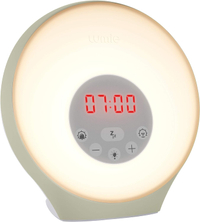I've experienced insomnia for years, but this one tip has been life changing
Wondering how to deal with sleep deprivation when nothing else is working? Lifelong insomniac Susan Griffin shares her life-changing advice
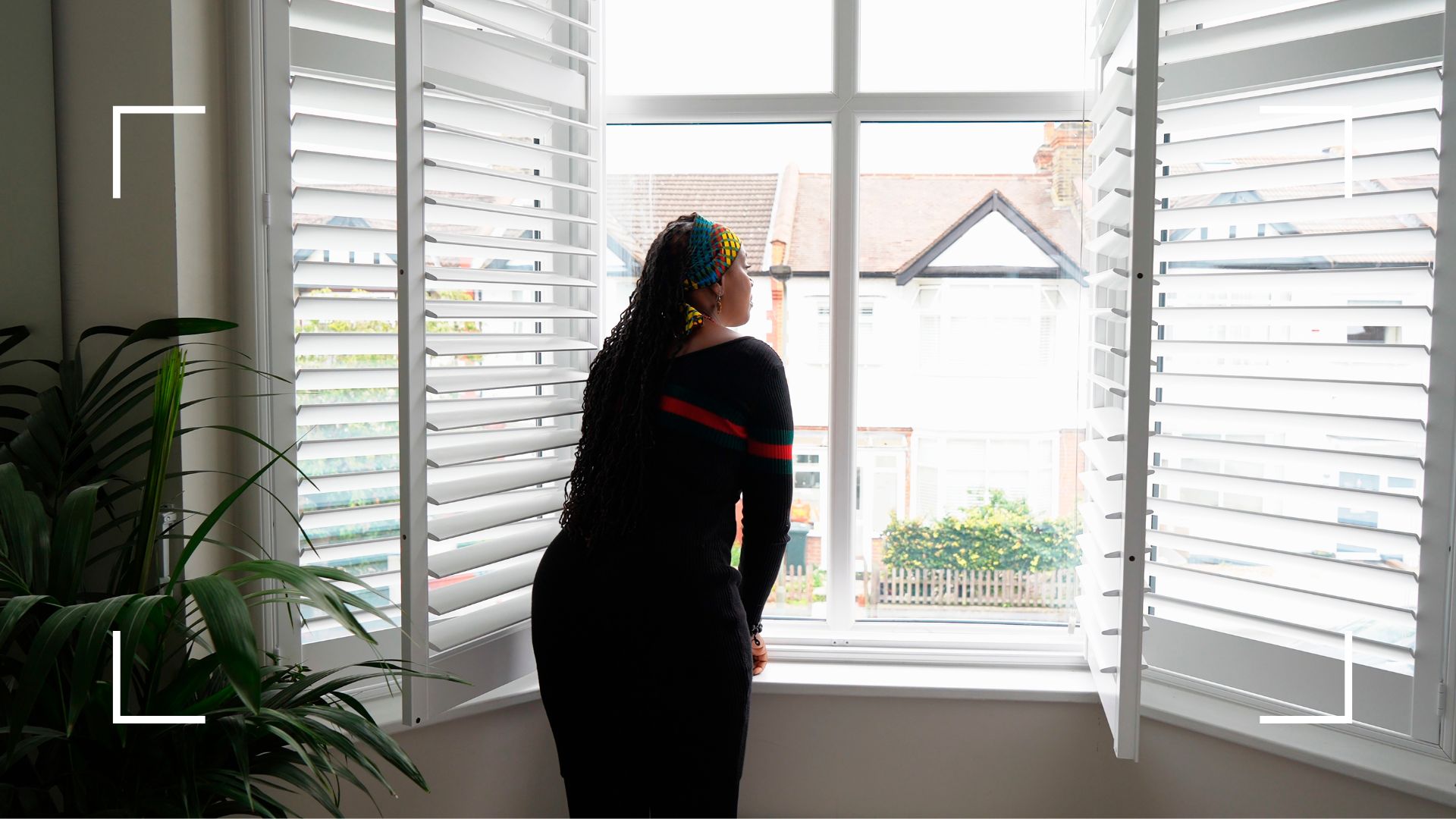

Wondering how to deal with sleep deprivation? Insomnia can be detrimental to our wellbeing but Susan Griffin, a lifelong insomniac, found a way to take the stress out of it.
There is nothing quite like waking up and feeling fully recharged after a restful night’s sleep to feel like you can tackle anything that comes your way. That sensation is especially potent if, like me, you regularly suffer from bouts of insomnia and have had to learn how to deal with sleep deprivation over the years. When you know what it means to be deprived of a decent night’s sleep, you never take it for granted when you do wake revitalized.
Despite my best attempts to learn how to sleep better over the years, I have had trouble sleeping since I was a child. My insomnia worsened during my teenage years; the typical teenage angst intensified by the loss of someone very close to me, and insomnia has continued to blight my life throughout adulthood. When I am exhausted from insomnia, I feel emotionally vulnerable, get stressed quicker, and I'm less able to think straight. Physically, it takes its toll, too. Dark shadows beneath the eyes, a greyish pallor to the skin and less energy, despite the sugary snacks I foolishly turn to for a mid-afternoon boost. It can be a downward spiral.
“Insomnia is characterized by the inability to fall asleep within a reasonable amount of time or stay asleep through the night,” explains Dr Chelsie Rohrscheib, a neuroscientist and head sleep expert at Wesper. “It can be acute, which is a short-term bout lasting less than three months, or chronic, a long-term bought lasting more than three months. Although insomnia is one of the most common sleep disorders, it is also one of the hardest sleep disorders to treat because there are many reasons it occurs."
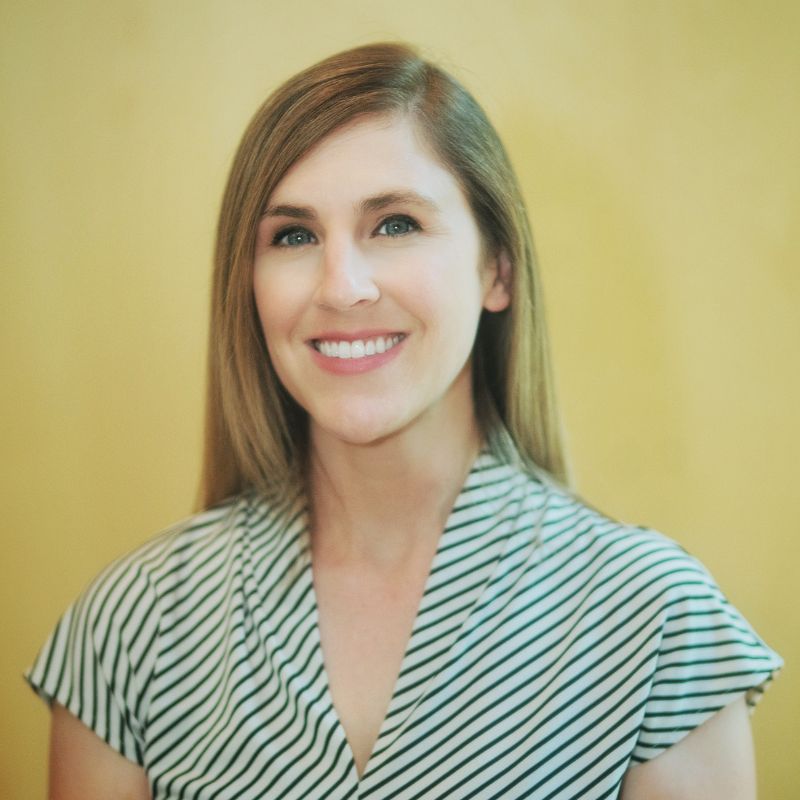
Dr Chelsie Rohrscheib is a neuroscientist and sleep expert with over a decade of experience in the field of sleep medicine. She holds a bachelor’s degree in Biomedical Science with Honors and a Ph.D. in Neuroscience with a speciality in sleep genetics.
Dr Rohrscheib is also the head sleep expert at Wesper, a sleep apnea diagnostic technology.
Although my insomnia is often exacerbated by hectic periods in life, it can also sneak up on me when life feels constant. But that is what makes insomnia so frustrating, wearing, and confusing. Sometimes there is no rhyme or reason for it, which is why it can be hard to know how to tackle or overcome it.
I'm not the only one who feels this way either. In fact, according to the World Economic Forum, 80% of adults across the globe want to improve the quality of their sleep, while the American Academy of Sleep Medicine has found that 30 to 35% of American adults experience symptoms of insomnia.
In recent years though, I have had something of an epiphany where sleep is concerned, which has completely altered how I feel about going to sleep and what happens if I wake in the middle of the night, and I am keen to share it.
Sign up to our free daily email for the latest royal and entertainment news, interesting opinion, expert advice on styling and beauty trends, and no-nonsense guides to the health and wellness questions you want answered.
How to deal with sleep deprivation
Although moving more through the day helps, there is one practice I have found life-changing and it involves zero effort. It is to simply stop worrying about getting one big block of unbroken sleep.
It may sound easier said than done but hear me out. If a full, interrupted night of sleep happens, amazing, but it's a lot of pressure to put yourself under before going to bed, especially if you suffer from insomnia. The burden can make it more difficult to fall asleep in the first place or create a sense of panic if you do wake in the middle of the night.
Find your own sleep pattern
The truth is, for years we have been bombarded with the idea that getting seven to nine hours of sleep is all that's needed and forgotten that there is actually no one-size-fits-all approach. Some people are morning larks, and others are night owls. There are also all sorts of sleep patterns that can be conducive to waking up feeling revitalised.
The person who explained this to me is Dr Michael Moseley, an insomniac himself. I interviewed Dr Moseley for his book Fast Asleep: How To Get a Really Good Night’s Rest in 2020. During the conversation, he explained the notion of getting a solid seven to nine hours is “something of a modern invention”.
Prior to the late 18th century, people would often go to sleep, wake up in the middle of the night, and then have a second sleep before getting up for the day. It's called biphasic sleeping, which essentially means sleeping in two segments.
Not only did Moseley highlight our predecessors’ approach to bedtime, but he also told me about the sleep patterns of traditional tribes such as the Hadza tribe, who continue to regard polyphasic (flexible and interrupted) sleep as the norm, as well as a study by psychiatrist Thomas Wehr in the 1990s where a group of volunteers who were plunged into darkness for 14 hours a day. They naturally fell into a two-phase sleep routine too.
Mosely himself has embraced the biphasic approach, flagging that what's important is sleep efficiency, as in the quality of the sleep you get, rather than the amount of time you spend in bed.
It's why these days I don’t go to bed worrying about attaining the holy grail of sleep. This in itself helps me nod off as it takes the pressure off, and if I do wake in the small hours, I just go with it. I remind myself it's how our ancestors slept. I typically put the bedside lamp on and read for a while and because I feel calm, rather than panicked, I’ll inevitably nod off again. I might not have slept all the way through the night but I typically wake up feeling sufficiently refreshed and that's all that matters.
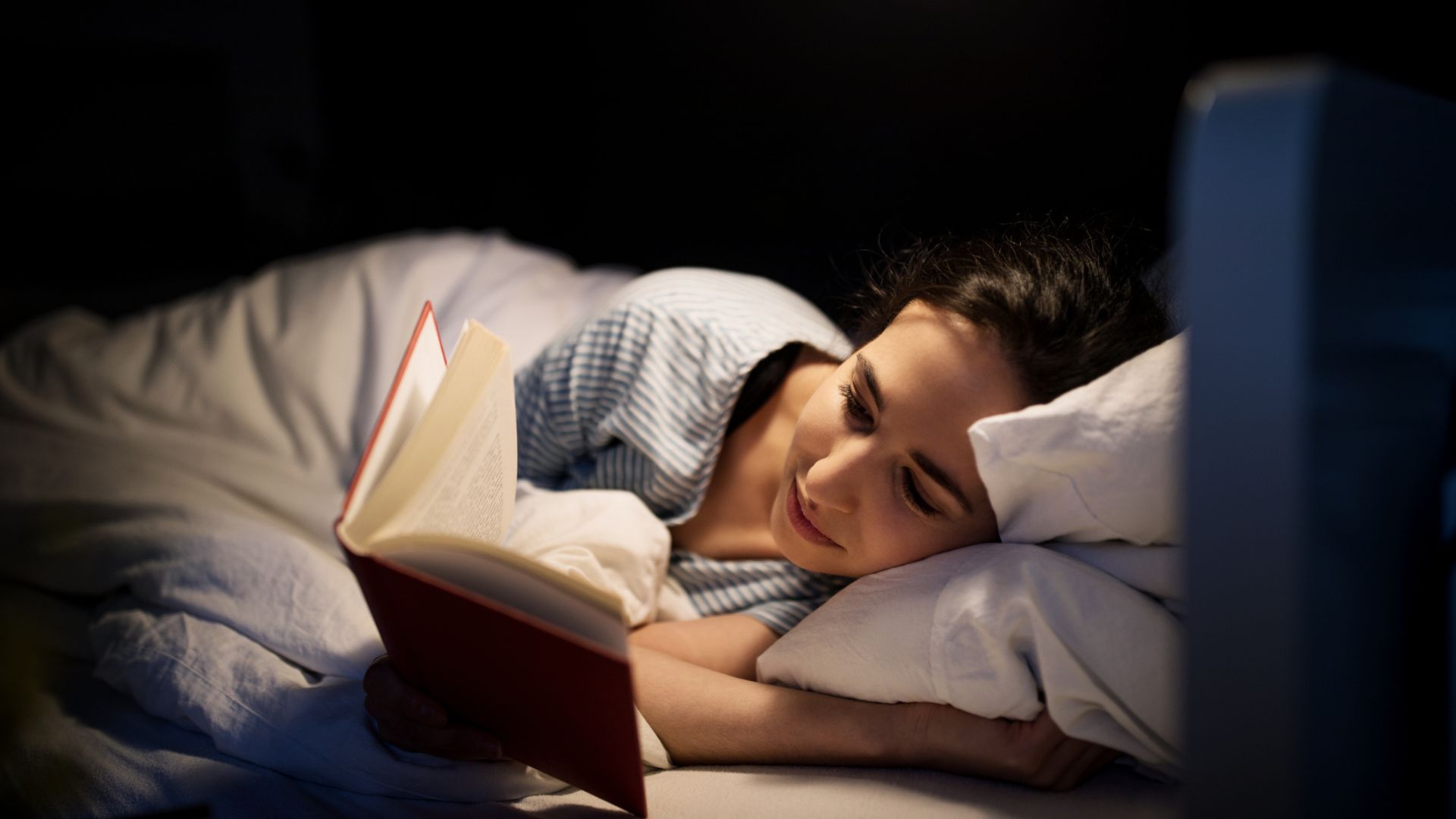
What the experts think
Neuroscientist Dr Rohrscheib agrees our approach to sleep has changed over the decades and while seven to nine hours is the optimum amount, she emphasizes the importance of finding a sleep routine that suits our individual needs rather than going for a one-size-fits-all approach. “While it's debatable in science as to whether a person should sleep for eight hours straight or split their sleep up, we need to focus on prioritizing our sleep health, and that means finding a sleep routine that works best for you,” she says.
“Learning to deal with sleep anxiety allows you to fall asleep faster and helps your brain get into a good sleep rhythm. If you're less stressed about sleep, your brain will be less active during the sleep transition process. Additionally, your blood cortisol levels will be lower, and your nervous system will be more relaxed, which promotes better sleep and prevents insomnia.”
Dr Danielle Wall from the University of Vermont and sleep advisor for Sit‘nSleep, is also of the opinion that setting too strict a goal with regards to sleep can be detrimental for those who want to know how to deal with sleep deprivation. “Everyone's ability to properly function and feel rested differs," she says. "Setting a goal to achieve a strict eight-hour sleep may indeed create anxiety, hindering relaxation and exacerbating sleep problems. A relaxed approach can alleviate sleep-related stress, promoting a more natural and restorative sleep experience."

Dr Danielle Wall is an internal medicine specialist from the University of Vermont and sleep advisor/consultant at SitnSleep.
But waking up at night isn't just part of biphasic sleeping, it's actually part of the sleep cycle. “Everyone's sleep cycle is slightly different and there are a variety of reasons that can wake someone up at night apart from sleep disorders. It's important to not stress about occasionally waking up. If there’s a concern and it’s affecting overall sleep quality and health, you should seek a medical professional.”
Tips for dealing with disturbed sleep
If you want to lean into the idea of biphasic sleeping as a way to learn how to deal with sleep deprivation, a concept that's been a game-changer for me in recent years, here's what the experts suggest.
- Assess your sleep hygiene: "Assess your sleep hygiene and behaviours that may be causing poor quality sleep," suggests Rohrscheib. For example, it may be worth switching to one of the alternatives to caffeine if you tend to have a coffee or cup of tea in the afternoons.
- Create a consistent sleep schedule: "Create and stick to a consistent sleep schedule to make falling asleep and waking up in the morning easier," Dr Shelby Harris, a clinical psychologist specializing in behavioural sleep medicine and author of The Women's Guide to Overcoming Insomnia, says. To do this, find the best time to sleep and wake up for you and your lifestyle and set a schedule of going to sleep at the same time every night.
- Nap during the day: While most sleep advice suggests avoiding naps during the day for better sleep at night, Dr Rohrscheib says they could be useful if you suffer from insomnia. "Try short naps during the day that are either 20 minutes (the lightest stage of the sleep cycle) or 90 minutes (at the end of a sleep cycle), so you avoid sleep inertia. Otherwise, you will experience excessive grogginess,” she says.
- Get outside first thing: "Light exposure first thing in the morning can help you feel more energised during the day and regulate and maintain your circadian rhythm,” says Dr Wall.
- Stop clock watching: "Avoid checking the clock frequently and limit stimulating activities," says Dr Harris, who is also the director of sleep health at Sleepopolis. "Practice relaxation techniques (deep breathing or meditation) to ease back into sleep."
- Ditch the alarm: Personally speaking, I find waking up without using a noise alarm the best way to start the day. You could use natural or simulated daylight so you are not pulled from a deep slumber. It's the last thing you need, especially if you haven't slept well.
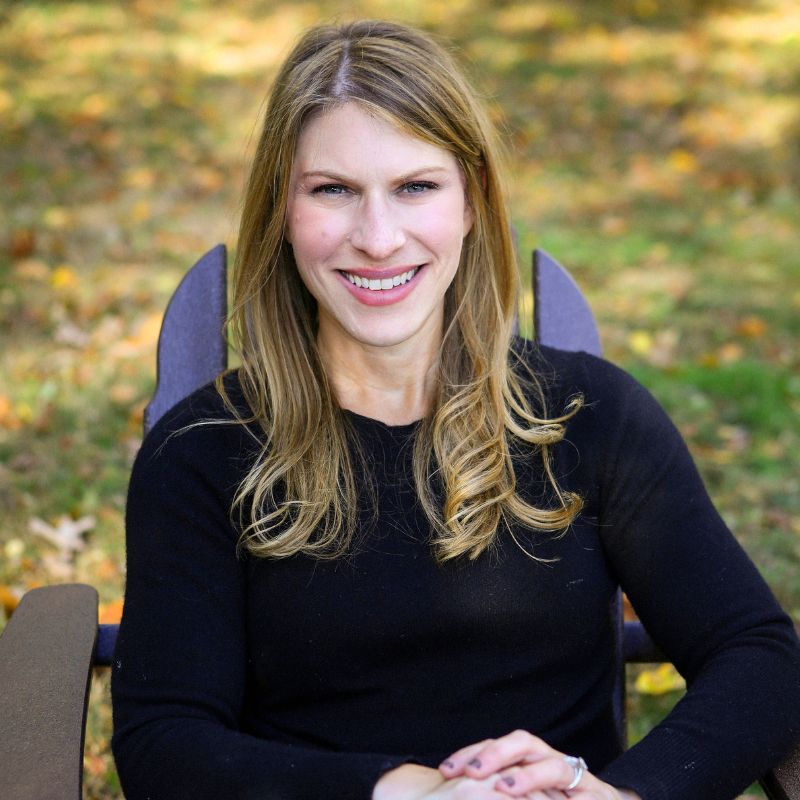
Dr Shelby Harris is a licensed clinical psychologist specialising in behavioural sleep medicine, and board certified in Behavioral Sleep Medicine (BSM) by the American Academy of Sleep Medicine. She also wrote a book titled The Women's Guide to Overcoming Insomnia and is Director of Sleep Health at Sleepopolis.
Lumie Sunrise Alarm - £49.99
As the mornings get darker, artificial daylight can be a useful way to wake up without an alarm. Lumie Sunrise Alarm offers just this, simulated daylight at a time that suits you.
A journalist with two decades of experience, Susan interviewed A-list names in film and TV before going freelance and focusing on health, wellbeing, and lifestyle features. She has since spoken to world-renowned experts on the most innovative and effective ways to look after your mind and body; her work appearing in publications such as Daily Express, Daily Mirror, Metro, Fabulous and The Telegraph. When Susan isn’t working on her laptop, she is most content hiking in the Peak District or finding quiet camping spots to while away a weekend and knows first-hand the restorative benefits of being outdoors.
